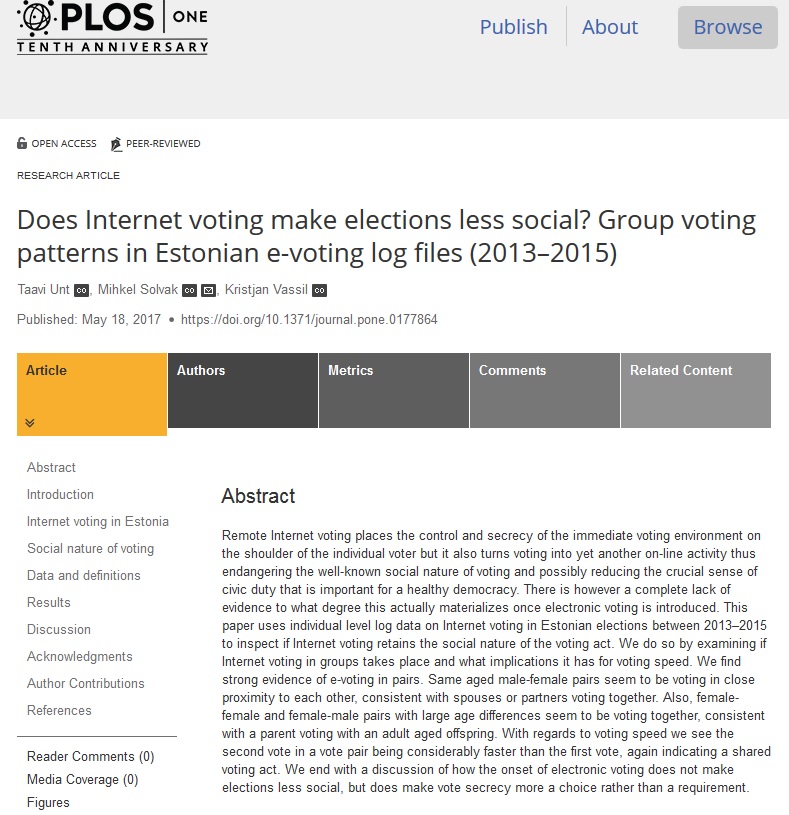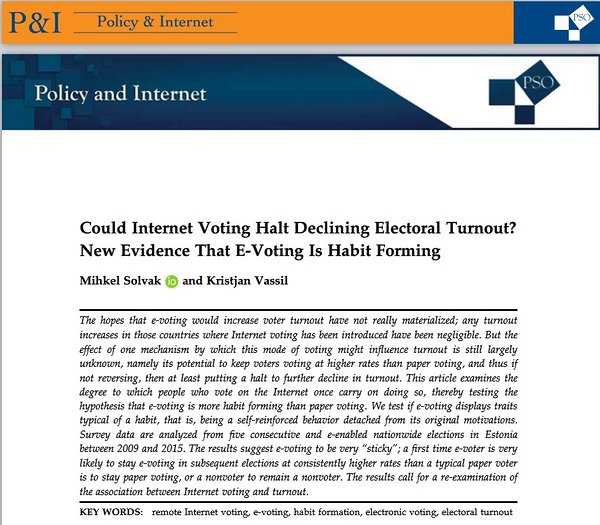Does Internet voting make elections less social? Group voting patterns in Estonian e-voting log files (2013–2015)
This paper, published in PLOS ONE by Taavi Unt, Mihkel Solvak and Kristjan Vassil, uses individual level log data on Internet voting in Estonian
elections between 2013–2015 to inspect if Internet voting retains the
social nature of the voting act.
Could Internet Voting Halt Declining Electoral Turnout? New Evidence That E-Voting Is Habit Forming
This article, published in Policy and Internet by Mihkel Solvak and
Kristjan
Vassil ,
examines the degree to which people who vote on the Internet once carry
on doing so, thereby testing the hypothesis that e-voting is more habit
forming than paper voting.


